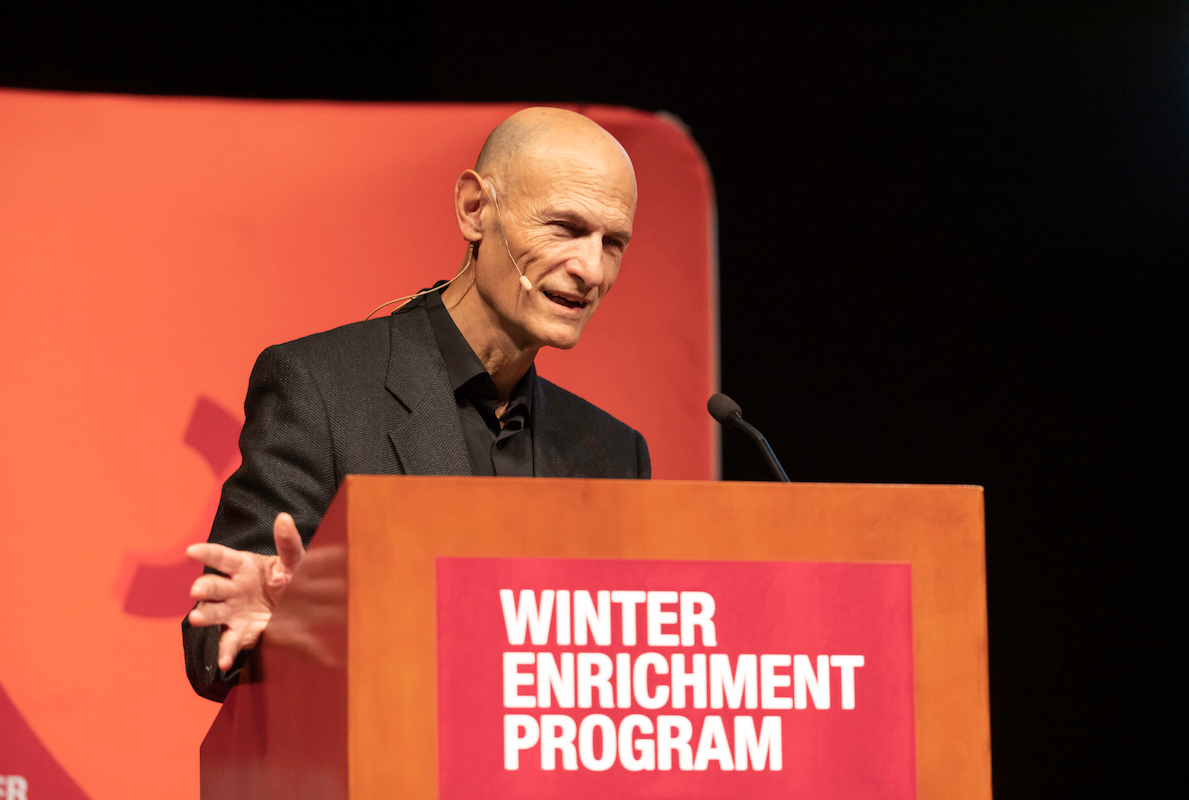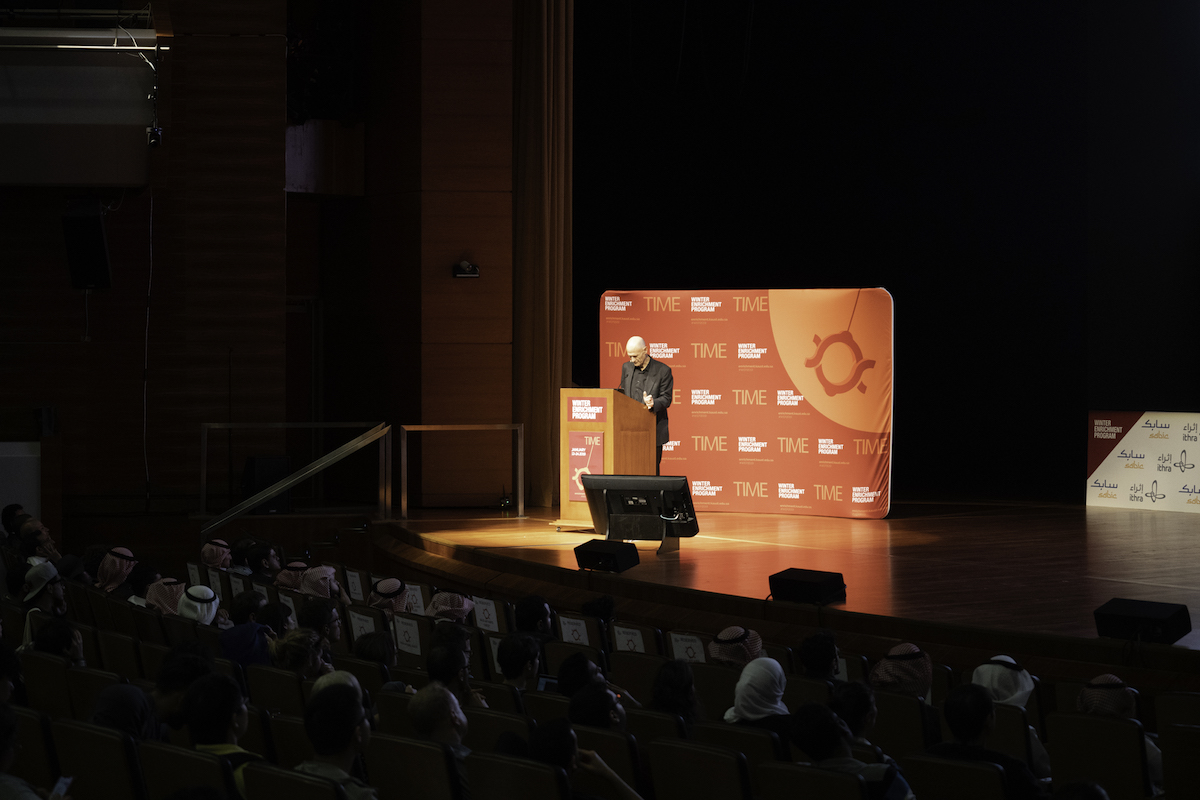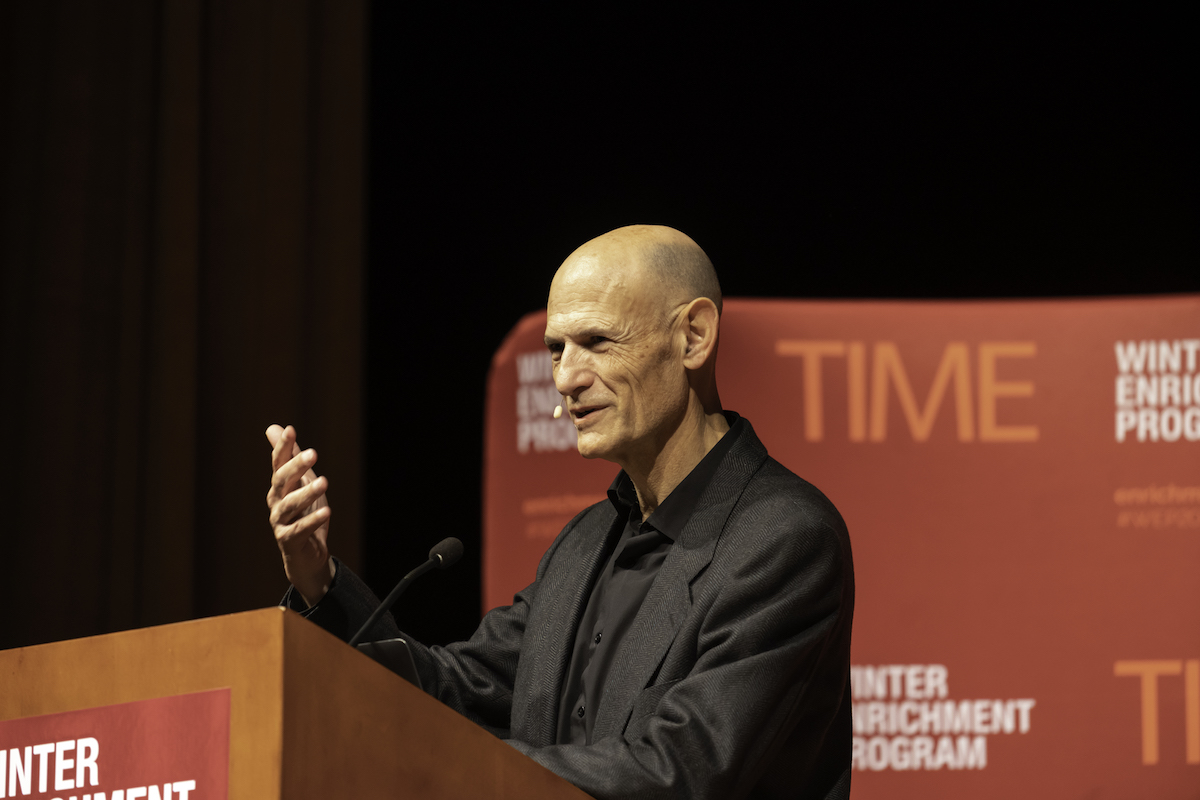What makes the human aging clock tick?

Juan Carlos Izpisua Belmonte from the Salk Institute for Biological Studies recently spoke on campus as part of the 2019 Winter Enrichment Program. Photo by Andrea Bachofen-Echt.
By Tanya Petersen, KAUST News
Professor Juan Carlos Izpisua Belmonte believes we are at a stage in human evolution where we can change our own species, and if anyone can make this call, Izpisua Belmonte can.
The Roger Guillemin Chair and professor at the prestigious Salk Institute for Biological Studies' Gene Expression Laboratory, Izpisua Belmonte is globally recognized for his expertise in stem cell biology and was recently named one of Time magazine's most influential people in healthcare. He shared some of his cutting-edge research in his KAUST 2019 Winter Enrichment Program keynote address on January 16.
Getting old may have many benefits, but it's not good for our health. After the age of 45, all major diseases—heart and kidney disease and cancer and diabetes—become much more prevalent in humans. The sis because our cells, tissues and organs start to deteriorate and don't work as well as when we were younger.
Combining gene editing and stem cell technologies, Izpisua Belmonte and his team grew a rat pancreas, heart and eyes in a developing mouse. Researchers also generated human cells and tissues in pig and cattle embryos, although they haven't yet been able to grow human organs.
"We injected a few human cells into a pig blastocyst, and after a few days you have millions of human cells growing in the pig, but the problem so far is that this experiment is not as efficient as the rat mouse experiment," Izpisua Belmonte explained. "We never get really an entire organ, so the way that the human cells talk to the pig cells is not as efficient as the rat talking to the mouse cells."

KAUST 2019 Winter Enrichment Program speaker Juan Carlos Izpisua Belmonte is internationally recognized for his stem cell biology expertise. Photo by Andrea Bachofen-Echt.
The Salk team is now working with KAUST under the direction of Pierre Magistretti, dean of the University's Biological and Environmental Science and Engineering division, and Valerio Orlando, head of the KAUST Environmental Epigenetics program, to try to rejuvenate organs with the use of noncoding RNAs and small metabolites that the body produces naturally.
"We can not just modify mitochondrial DNA, but we can also modify nuclear DNA, and last year we made the proof of concept in the mutation in people that die a sudden death," Izpisua Belmonte said. "One day they are running—they seem to be healthy, but they just drop on the floor and they die. That's because they have a mutation that causes an arrhythmic affect in their heart. So what we did was to take embryos from these individuals and, using gene editing technologies, we were able to demonstrate in vitro that now we can correct that particular mutation."
In a fascinating comparison, the genome of a person 100 years ago and a person today is the same, but there is a 25 year increase in the average human lifespan.
"The implication of this is that no matter how we come from the factory—no matter what our parents gave us in the genome—changing the epigenome has a big influence in the aging process of our cells, and by altering the epigenome, we can alter the process of aging," he noted.

Juan Carlos Izpisua Belmonte, a professor at the Salk Institute for Biological Studies in the U.S., spoke on campus on January 16 as part of the KAUST 2019 Winter Enrichment Program. Photo by Andrea Bachofen-Echt.
The Salk team is now working with KAUST under the direction of Pierre Magistretti, dean of the University's Biological and Environmental Science and Engineering division, to try to rejuvenate organs with the use of small metabolites that the body produces naturally.
"We, in the lab, can...rewrite and erase our genome and our epigenome. What are we going to do if we live twice as long and how will it affect us?" Izpisua Belmonte asked. "These are certainly major topics that we as a society need to address. The technology is coming and we are not prepared to solve many of the questions we need to address."
Related stories:
- What is consciousness?
- Rachel Sussman: All the time in the world
- A matter of time
-
How does the universe work?

